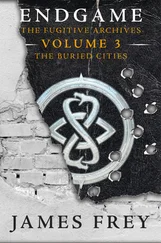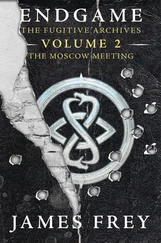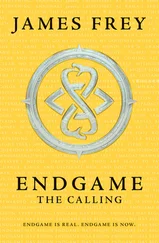Once the monitor stopped and the paramedic didn’t do anything. Just stared and shook his head. I didn’t blame him. It seemed like a lost cause. Ten seconds passed, maybe twenty, it seemed like forever. I just stared at Ben, or what was left of him, and tried to figure out what the fuck went wrong, how this could have happened. I started to say I’m sorry, as if apologizing to a dead man would mean something, though it seems that’s how it works most of the time; we say the things that matter to people when it’s already too late. Before the words came out of my mouth, the monitor started registering a pulse again. Something kept bringing him back. Something was not going to let him go.
We pulled into the hospital and they rushed him away. I followed them into the emergency room. I gave the administrators all the information I could. I filled out all of the forms as best as I could. I called back to the site and asked for a change of clothes because the ones I was wearing were covered with blood. Men from the site started showing up. We were all in shock. Just sat and talked about how we couldn’t believe it happened, how awful it was. Media started showing up and trying to interview people. Nobody said a word. We knew it wouldn’t matter if we did, that the media was gonna write what they wanted to write regardless of their so-called ethics, and their supposed belief in truth. We just sat and waited to hear that Ben had died. We assumed it was so. Though I had seen what I had seen in the ambulance, at the time I didn’t believe it was anything more than coincidence.
More men from the site arrived. The crane operator and window installers came in. They were deeply and visibly shaken. I sat with them, asked what happened. They didn’t know. They claimed the crate was intact. That there was no way that glass should have come out, or could have come out. I told them I saw the nails fall, and saw the back of the crate fall. They claimed that was impossible. That the crate was intact. There was tape around it, tape that had been applied at the factory, and that it was unbroken. The crate was empty. They could tell that by its weight. But it had never been opened. I figured someone was trying to cover their ass. Someone had fucked up and didn’t want to take responsibility for another man’s death. Ultimately the responsibility would have fallen on me. But it turned out they were right. The crate was unopened and empty. City and state accident investigators all agreed. The crate was fucking unopened. How the glass fell has never been explained. And Ben didn’t die. Somehow he survived. More than survived. So much more. Something kept bringing him back. Something wouldn’t let him go. Something, or someone, or I don’t know what, wouldn’t let him die.
I was on break when the call came in, watching a baseball game with some of the guys who work in the cafeteria and were also on break. It was a Yankee game, and I love the Yankees, and though my schedule tends to prevent me from seeing as many games as I would like, I try to see two or three a week during the season, and I always watch during my breaks. I love the systems and the order of baseball, and I very much appreciate the cause-and-effect nature of the game. As a surgeon, my entire life is based in the systems of the human body, the systems of the hospital and a surgical team, the order or orders under which those things operate, and the cause-and-effect nature of trauma, injury, and the surgical attempts to remedy them. Though it often seems chaotic and anarchic and spontaneous, all life is system, order, and cause and effect. Try as so many do, it is impossible to escape them. I gave up at a fairly young age and decided to dedicate my life to the service of them.
The call was white male, late twenties or early thirties, massive trauma, massive head wounds, massive blood loss, and then the unusual part, which was the first of so many unusual occurrences with Ben and his case, hundreds of shards of glass imbedded in his body. I’m a geek about my job, and after doing it for many years-I was forty-one when the case began-I still get excited when a case comes in that sounds different or challenging for some reason. At the time, I didn’t even think about the human element of it, that someone had just undergone some horrific event and was experiencing feelings and emotions that are far beyond anything within the realm of my experience. I just thought about the potential medical and technical challenges involved and how I would solve them. Ben changed that for me. Now much of what I think lies within the human realm of the surgical experience, what the patient is feeling, what the people who love the patient are feeling, and how I can help with those issues as well. I understand that all of our lives revolve around what we are feeling at any given moment. There is nothing more human than emotion.
I got up and I said goodbye to my fellow Yankee fans and I quickly made my way to the trauma suite. Everyone was getting ready, the nurses, the assistants, the residents, and I was the last to arrive. At that point, and again this was before my experience with Ben changed me, because my position as the head surgeon is one of authority, I tended not to speak to any of the people I worked with unless I needed something from them or needed to discuss a specific aspect of the impending surgery with them, both of which were rare. While I scrubbed in and prepared myself for whatever it was that was arriving, I was silent.
The moments while a team waits for a patient can be very tense. You stand at the ready. While you have a general idea of condition, you do not often know what the specific medical issues are, and you have no idea if you will be there for ten minutes or ten hours, though there is rarely anything in between. Different surgeons handle it differently. I think of myself as a batter in a baseball game, actually in the seventh game of the World Series, with the bases loaded, a three-and-two count, down by three runs, in the bottom of the ninth inning. I have one swing to either succeed or fail and the result entirely depends on what I do and how I perform. Unlike in baseball, though, I cannot hit a single, a double, or a triple. I either hit a home run or I strike out, and the patient either lives or dies.
As I mentioned, I was intrigued and excited by the call, and had no idea what a patient who had shards of glass imbedded in his body would look like or what I would need to do to make that patient survive. When paramedics enter the hospital with a critical case, they are greeted by ER doctors and members of the surgical team, and there is a transfer of information related to the patient: the circumstances of the trauma, issues, if any, during transfer, a preliminary diagnosis, if one is possible. Once the transfer is made, the patient is brought into the trauma bay, where I, and the rest of the team, go to work. It is usually a fairly seamless process, and it is one that is repeated with great regularity.
Not so with Ben. The EMTS were covered with blood, as was the stretcher. They started to describe the scene, and one of them kept repeating something I myself said many times later, which was that there was no way the patient should be alive, and that he had no idea what was going on with him. The doctors and nurses, who were incredibly seasoned and experienced, and had seen all manner of horror and gore after years in a public New York City emergency room and trauma unit, were shocked almost into paralysis, and one of the nurses vomited. Each looked to the others for direction, which is not entirely surprising. In life we often look to others for simple, but difficult answers, despite the fact that we have those answers ourselves. They needed to get him into surgery, and they needed to do it as soon as possible.
Читать дальше












